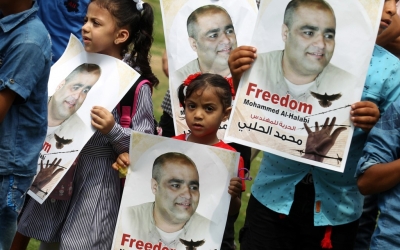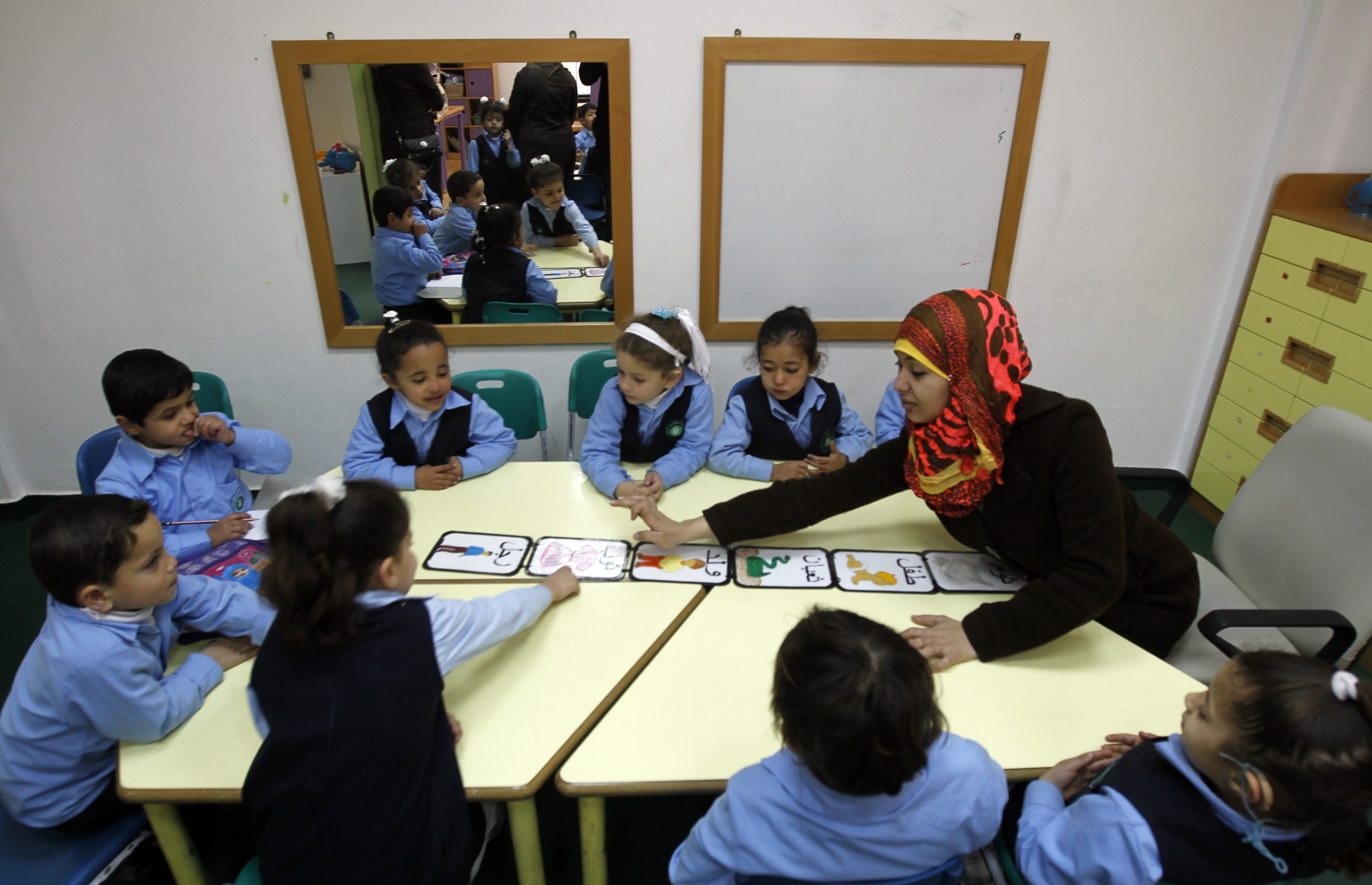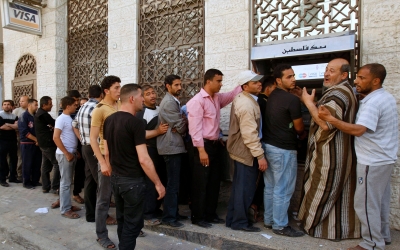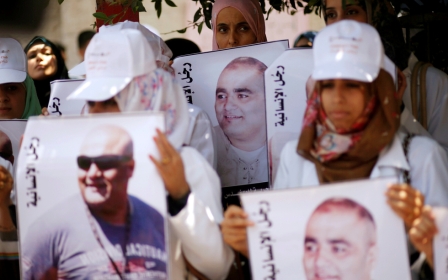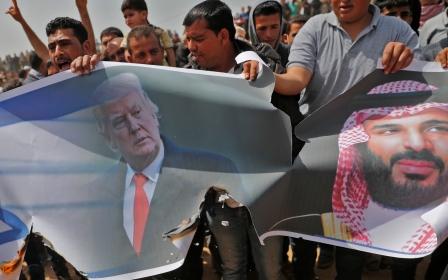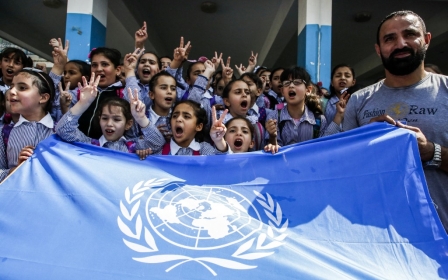Gaza NGOs slam Palestinian Authority over frozen bank accounts
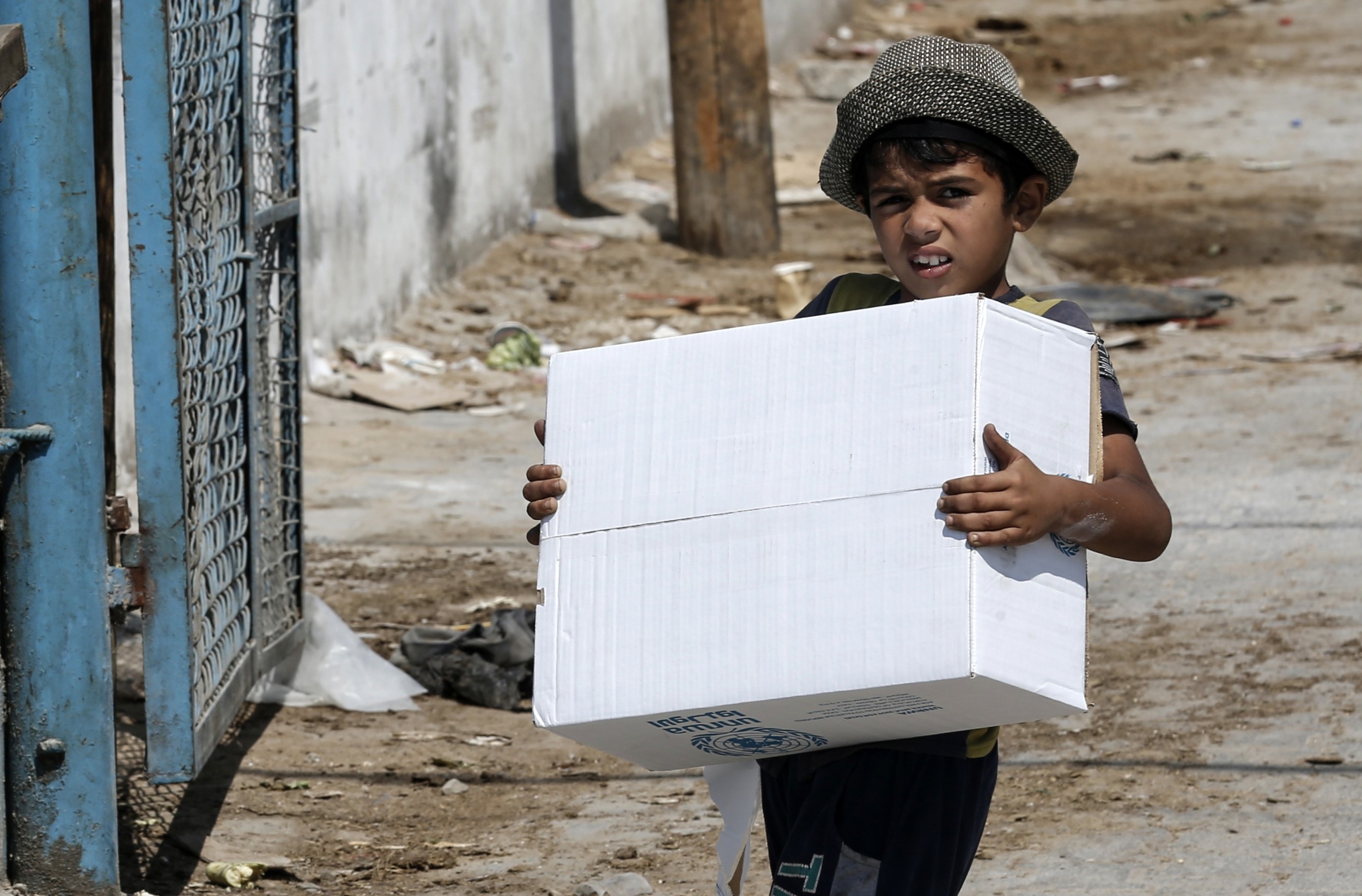
Dozens of NGOs in the besieged Gaza Strip are ringing the alarm over the freezing of their bank accounts following restrictions imposed by the Palestinian Authority (PA) Ministry of Interior based in the occupied West Bank.
The policy, in place since 2017, is now threatening numerous organisations with collapse, to the detriment of thousands of beneficiaries in the Palestinian enclave 12 years into a stringent Israel-imposed blockade.
NGOs have found themselves in the crossfire of the longstanding political divide between the two main Palestinian political factions Hamas - the de facto ruling party in Gaza - and Fatah, the leading party in the PA, ever since Hamas won 2006 legislative elections.
With some 80 percent of residents in Gaza dependent on humanitarian aid according to the United Nations, organisations worry that the ongoing political feud could have a serious impact on an already vulnerable population in the besieged enclave.
Political feud
New MEE newsletter: Jerusalem Dispatch
Sign up to get the latest insights and analysis on Israel-Palestine, alongside Turkey Unpacked and other MEE newsletters
Representatives of the Palestinian NGO Network (PNGO) in Gaza told Middle East Eye that Palestinian banks have been freezing the bank accounts of organisations once the terms of their boards of directors end; with accounts unfrozen once their new boards' credentials are renewed by the PA Ministry of Interior based in the West Bank city of Ramallah.
The ministry, however, is being accused of deliberately delaying and impeding the issuance of licences and credentials for the NGOs’ new boards.
"The Ministry of Interior cannot force banks operating in the state of Palestine to close or freeze any bank account of any association or organisation registered with us," Abd Nasser al-Serafi, the director general of NGOs and Public Affairs at the Ministry of Interior in Ramallah, told MEE.
Serafi added that the only body responsible for following up with banks operating in Palestine was the Palestinian Monetary Authority (PMA). The PMA, meanwhile, has denied any connection to the crisis of freezing NGO bank accounts.
The Deir al-Balah Association for the Rehabilitation of the Disabled is one of the organisations whose bank accounts have been frozen since the PA began imposing punitive measures on the Gaza Strip in 2017.
Khaled Abu Shuaib, the association's director general, told Middle East Eye that the Ministry of Interior has not issued credentials for the organisation’s new board for two months, leaving the Deir al-Balah organisation unable to access its funds.
According to several NGO officials, paperwork submitted to the ministry in Ramallah are subject to strict security checks and - deliberately, they believe - subjected to lengthy delays. Applications can be rejected if an NGO’s board allegedly includes a member of Hamas or someone loyal to Mohammed Dahlan, the disgraced leader of Fatah in Gaza.
Abu Shuaib said that the Ministry of Interior had refused to approve the Association for the Rehabilitation of the Disabled's new board, requesting that a number of its members change as it claimed they belonged to Hamas.
Being a member of Hamas is not illegal under PA law, unlike in Israel, but can lead to discrimination in the West Bank - much like being a member of Fatah in Gaza.
The "duplication" of official dealings between the interior ministries in Gaza and Ramallah has negatively impacted NGOs, Abu Shuaib said.
"Until 2017, we submitted our papers to the Ministry of Interior in Gaza - but since then the Ministry of Interior in Ramallah has forced us to obtain licences through them and get our paperwork approved through them," he said. "Associations in Gaza suffer from unfair conditions and procedures set by the two ministries.
"Neither of them has the right to put [these procedures] in place," Abu Shaib added. "Associations must be kept out of their political differences.”
Services affected
According to the latest statistics issued by the Ministry of Interior in Gaza, the coastal enclave counts some 1,033 local NGOs and associations, in addition to more than 100 branches of foreign charities working in the medical and humanitarian relief fields.
The work of these organisations has become all the more crucial following the United States' decision last year to cut all funding to the United Nations Relief and Works Agency (UNRWA) - the UN agency for Palestinian refugees that represents nearly three-quarters of Gaza's population.
Abu Shuaib's Deir al-Balah Association for the Rehabilitation of the Disabled serves some 185 hearing-impaired students attending al-Hanan School for the Deaf, and another 1,000 beneficiaries each month at the Physiotherapy Hospital, in addition to hundreds of others who use its vocational training centre and hearing and speech clinic.
The association, founded in 1997, is currently adopting an "austerity policy", Abu Shuaib said. If its accounts remain closed for more than six months, the organisation will have to shut down, leaving hundreds of disabled beneficiaries without access to its services.
An official at a charity providing services to the elderly - who spoke on condition of anonymity - agreed with Abu Shuaib.
The unnamed official said the restrictions threatened the private NGO sector in Gaza with collapse - a possibility all the more concerning given the role charities have taken on to palliate for the dearth of governmental aid in Gaza, especially since the beginning of the internal Palestinian political split in 2006.
The official accused the banks of "colluding with the PA" and "taking part in the internal political conflict".
Against the law
PNGO director Amjad al-Shawa told MEE that the frozen accounts were only the latest obstacle for Gaza NGOs already facing the pressures of Israeli violence and the siege, in addition to diminishing international funding.
These strains have already led a number of organisations to close their doors, while others have been forced to reduce their programmes and services, Shawa said.
Over the past two years, he explained, PNGO had quietly tried to resolve the problems arising from the new Ministry of Interior procedures - to no avail.
PNGO has received complaints from NGOs in the Gaza Strip about their Palestinian accounts being frozen - highlighting that this not only threatens the services they provide to beneficiaries but also endangers their relationships with financiers and suppliers.
Shawa added that some banks operating in the Gaza Strip have also refused to open bank accounts for newly registered NGOs, even if they had obtained the required certificates from the Ministry of Interior in Ramallah. Such denial of service, he said, violates the Law of Charitable Societies and Non-Governmental Organizations No. 1 of 2000.
The Gaza-based Al-Dameer Association for Human Rights has reportedly received eight complaints from organisations whose accounts were frozen following objections by the Ministry of Interior to its boards, Al-Dameer lawyer Alaa al-Skafi told MEE, stressing that the ministry has no right to object as long as the members of the board met the conditions set forth by the law.
For Shawa, the humanitarian situation in Gaza makes it all the more urgent for NGOs to be kept out of political infighting.
"Associations are committed to the law and the principles of transparency and accountability, away from [political] division and its repercussions," Shawa said.
Middle East Eye delivers independent and unrivalled coverage and analysis of the Middle East, North Africa and beyond. To learn more about republishing this content and the associated fees, please fill out this form. More about MEE can be found here.


